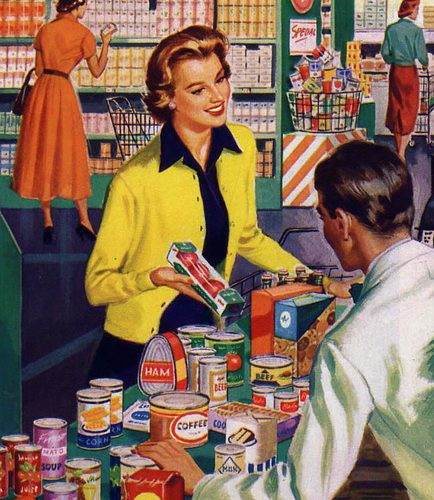Terror in aisle 5: ISIS wants to poison your groceries

Personal Liberty Poll
Exercise your right to vote.
ISIS groups are calling on lone wolf terrorists to use easily attainable chemicals to poison foods sold in American supermarkets. Success could cause mass death, market panic and extreme food shortages throughout the Western world.
News of the plan comes via an intelligence report out from the Search for International Terrorist Entities (SITE) consultancy group, an organization which tracks planning and activities of international terror networks for government and corporate clients worldwide.
According to the organization, ISIS called on lone wolf attackers to begin poisoning food throughout the Untied States, Europe and Russia starting on the Islamic “Sacrifice Feast” Eid al-Adha which ended Tuesday.
The SITE report indicates that the primary mode of poisoning, which could take place via infiltration at food processing plants, distribution hubs, or even in the aisle of your local supermarket, would be via cyanide and other chemicals synthesized from easily attainable sources.
Earlier this year, the UK’s The Times reported on documents showing that the terror group has diligently worked to to teach lone wolf terrorists how to synthesize deadly chemicals from products readily available in modern countries such as pesticides and even e-cigarettes.
ISIS reportedly tested the efficacy of its home brew death chemicals on prisoners before issuing its call to action to global sympathizers.
From The Times’ report:
The papers, written in Arabic, report the production and testing of two chemical compounds — thallium sulphate and a nicotine-based compound — at the Isis development and military industrialisation commission.Isis poisoned a man, who weighed almost 16 stone, by feeding him thallium sulphate either with contaminated food or water. The papers report that after two days the victim began to suffer nauseousness, a fever and swelling of the stomach and brain. He was declared dead ten days later.The documents claimed that Isis was in “possession of an ample amount of the solution to fill demands”. They describe the compound as an “ideal lethal poison” because it is difficult to detect and symptoms are delayed.Jihadists were advised to administer the thallium sulphate through food or water because it dissolves easily in liquid, leading to fears that they could target westerners through a food supply.The second compound, a nicotine agent, was tested by both injection and touch. The injection test resulted in the victim losing consciousness “within seconds of delivery” and being declared dead within two hours. Another man was subjected to testing, with the nicotine compound administered by smearing it on his skin. He quickly lost consciousness, though he was not reported dead.Thallium sulphate is commercially available as a pesticide in many countries such as the US, while key ingredients required for the nicotine compound can be extracted from cigarettes and vaping supplies.The Isis documents included full recipes and instructions for producing the nicotine compound.
Aside from the obviously deadly terrifying consequences of a large scale contamination attack on a major U.S. food or water supplier, the results of multiple smaller scale attacks throughout the nation should be of major concern.
As Zero Hedge pointed out in a recent report: “[A] terror attack in an American grocery store would annihilate billions in grocery stock market cap, adding to the industry’s Whole Foods Market-inspired woes. Investors who once saw grocers as an oasis in the troubled retail sector are increasingly balking now that Amazon has promised to use sensors and automation to save on staffing costs and undercut rivals on pricing. And the terror threats won’t help.”
That means grocers, out of an abundance of caution or simply in response to panic-induced economic catastrophe, could be forced to shutter in rapid fashion on the heels of contamination reports. At least in the short term, food shortages would become a major concern– and depending on the economic impact such attacks had, those shortages could have the potential to become a long term reality.
Did you know that most grocery stores stock less than two days of food? Imagine how quickly that stock will disappear amid a panic induced by news of poisoning. At very least, products with the lowest potential for contamination will fly off the shelves, leaving shoppers to play roulette in deciding whether remaining products are safe.
The best hedge against such unthinkable outcomes is a focus on food sustainability at the individual level. Smart folks who have food and water stored are going to be able to deal with the crisis a lot better than those who don’t. Even without the threat of ISIS’s food contamination schemes, it’s a good idea to keep a healthy store of survival food and water on hand. This means a store of easily stock-able dry goods and one-pot meals.
But considering rising contamination threats in mainstream stores, it’s a good time to look at popular survival food options you won’t find in your local supermarket. An excellent choice would be food storage bucket systems which combine an easily store-able packaging system with the peace of mind that comes with purchasing products from a smaller provider less susceptible to unnoticed tampering in production and warehousing environments.

No comments:
Post a Comment
Thanks for commenting. Your comments are needed for helping to improve the discussion.